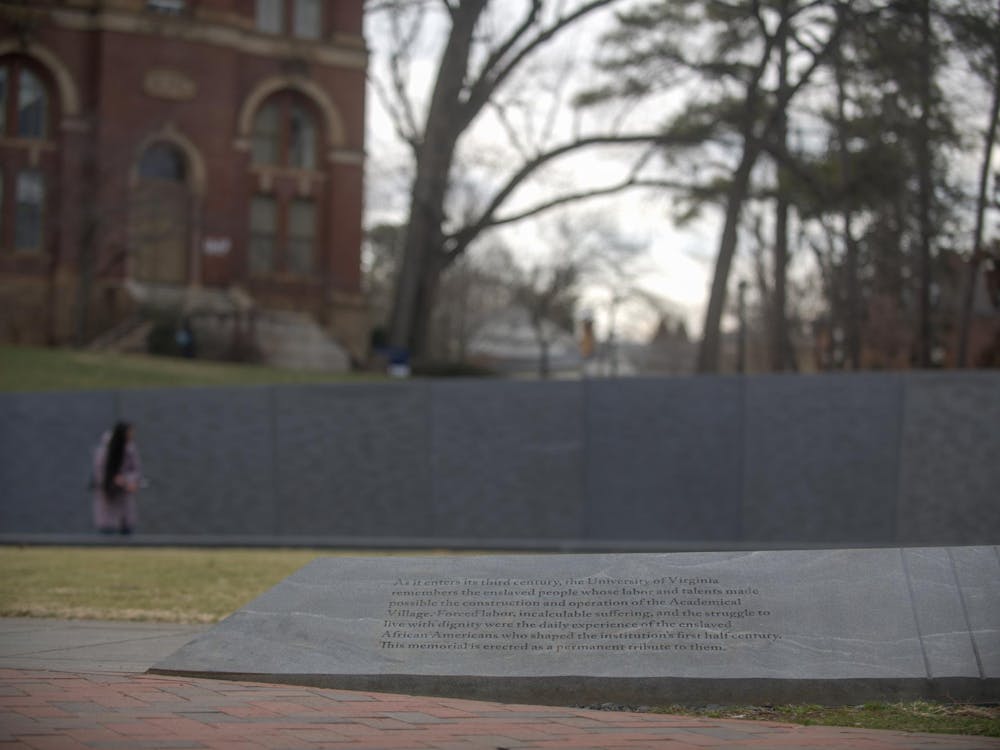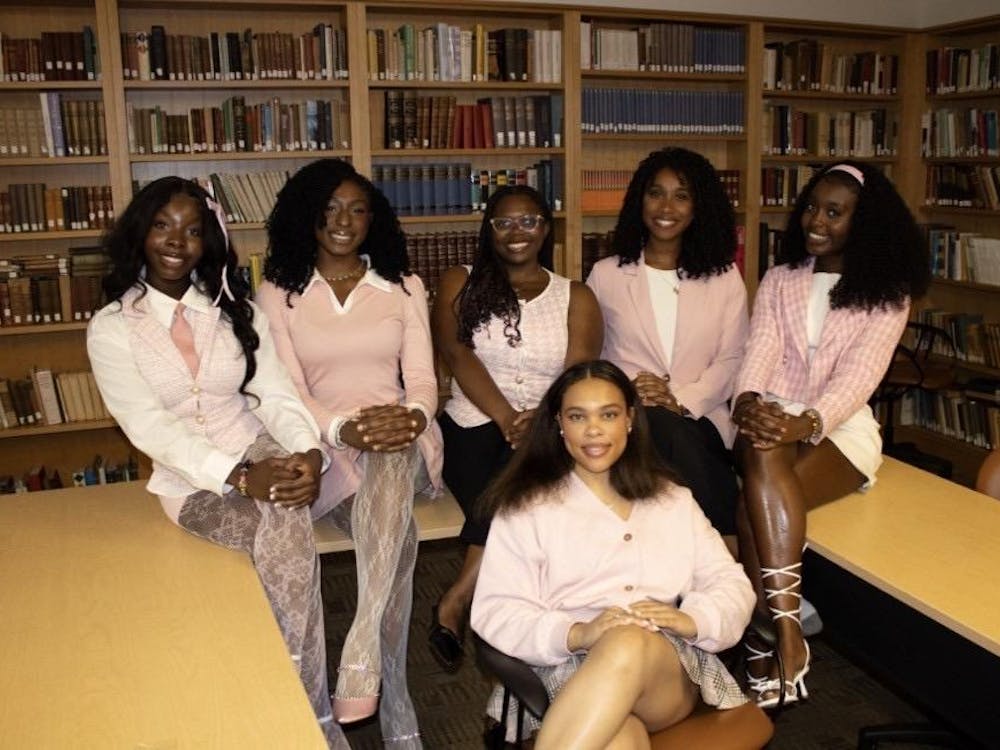Each week, identical starched uniforms inun-date Grounds on a regular basis without being given a second glance. Most Tuesdays and Thursdays, members of the University's Reserve Officers' Training Corps don their respective white, blue and green regalia.
But with the Sept. 11 terrorist attacks and President Bush's calls for justice, those white, blue and green uniforms have taken on special meaning. With the media trumpeting "America's New War," the members of the University community in their military garb have come to symbolize a changing view of war.
How will this conflict affect the average student? While some fear a draft, a number of events would have to occur before the selective service, which all males aged 18 to 25 are required by law to register for, could be reinstated.
The volunteer military is, in times of war, the first base of defense used. If the new war on terrorism escalates beyond the resources of the United States military though, both Congress and the president would have to authorize a draft. Only then would a birthday-based lottery pinpoint draftees and would all sections of the selective service be activated.
Yet even if all the necessary measures were taken, it remains doubtful that the draft would make its mark on Grounds.
Col. James Allshouse, commander of Air Force ROTC Detachment 890 and a professor of air science at the University, approaches the possibility of a draft with a great deal of trepidation.
| Rough Draft |
| In a TIME/CNN telephone poll of 1,082 American adults published in the September 24, 2001 issue of TIME, 66 percent of those asked would "favor the reinstatement of the draft ... if a military invasion of another country using ground troops becomes necessary to punish those responsible for Tuesday's attack." Twenty-eight percent would not favor reinstatement. |
"I think the possibility of reinstating the draft is very remote," Allshouse said. "However, if it were [reinstated], I'm sure there would be deferments for college students as there were during the Vietnam conflict. If reinstated, I think the draft would have no effect on education here at U.Va."
Lt. Col. Hampton Hite, chairman of the University's department of military services for Army ROTC, seconded Allshouse's thoughts.
"With whatever certainty [there can be], students will continue their studies and training here at U.Va.," Hite said.
Educational deferments to the draft would effect all current members of the ROTC as well. With this in mind, ROTC programs are continuing without any structural or administrative alterations.
Sept. 11's tragedy "hasn't fundamentally changed the way we're doing business, but certainly, it is in the back of our mind," Hite explained.
ROTC programs themselves have not changed, but the attitudes within the programs have. Following graduation, many fourth-year students are required to be commissioned and enter into active duty. After a training period of six to eight months, they then become members of military units and, from there, would face the possibility of entering combat.
Though Ed Burnett, a fourth-year College student and Navy ROTC cadet, will go to graduate and flight school after graduation, he said that, "It is fascinating that some of my peers, in 14, 15 months, may be serving on a ship in a theatre of war."
One of these peers is Bryan Miller, another fourth-year College student and Navy ROTC cadet.
"When you sign up for ROTC, you know there is always a chance of going into duty," Miller said. Yet with the recent terrorist attacks, he acknowledges a general change in attitude toward training.
"It's a different mindset. You know you're training for something inevitable ... before we were training toward hypothetical situations," he said.
While Burnett and Miller have yet to participate in military action, Ted Corbeill, a fourth-year Commerce student and staff sergeant for Navy ROTC, has been in the U.S. Marine Corps for 10 years. For six of those 10 years he said he was on the "tip of the sphere," in bases all across Southeast Asia.
"For me, last week didn't change expectations - they've always been there," Corbeill said. "Obviously, personally, the anxiety level and personal stress has increased, as opposed to '95 and '96, when there was not much chance."
Corbeill's perspective is different now from what it was 10 years ago, not only because of all that he has experienced, but also because of new obligations. "My perspective has changed a lot," he said. "I'm now 28, married, and have a son who's 1-month old. My responsibilities have changed, but I'm still a Marine and it is a commitment I take seriously. My level of sacrifice has changed. I'm now a husband and a father, as well as a son, grandson. I have more to lose."
Corbeill also said that he thinks younger members of ROTC cannot share his perspective. Instead, he said it's something that comes with experience.
"ROTC students - thoughts of killing someone hasn't entered their minds," Corbeill said. "They're doing a job rather than defense. They envision [ROTC] as another class, or a club, activity."
For many ROTC members it seems that after living a life deep within the folds of the University community, it is hard to imagine entering a hostile situation where combat is inevitable.
Sept. 11's terrorist attacks "were, as a fourth-year living a typical college life, a reality check," said fourth-year College student Mark Buchy, an Air Force ROTC member.
Despite this, fourth-year ROTC students in general seem primed and prepared to do all they can for their country.
"People who are committed to ROTC are running full speed with it," Buchy said. "Tragedy happened, but we're still running."
There also is evidence of some level of anticipation. Kimi White, a fourth-year College student and member of Army ROTC, recalls that the scenes she saw on network television renewed her sense of determination.
"The attacks made me want to go into military service even more," White said. "Sitting and watching TV on the 11th, it's kind of hard to help. It's good to know I can serve my country."
Burnett also sees the prospect of active military service in a positive light.
"It's something that's both exciting and invigorating to be involved. Rather than just reading the headlines, we'd be making them," Burnett said.
In the end, it is clear that the prospect of war has neither dented nor destroyed the level of dedication these students feel towards military duty. When donning their white, blue and green uniforms, ROTC cadet dedication is literally worn on the sleeve.
"On Tuesday I felt as proud as ever to wear my uniform," Miller said.






